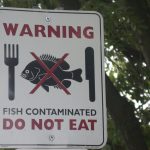 Among the top foods recommended for good brain health, Alaskan salmon is the prime choice for protein and Omega 3. But, in today’s world, unfortunately only Chinook and Sockeye cold water fish qualify (definitely not farm raised and the genetically altered versions proposed).
Among the top foods recommended for good brain health, Alaskan salmon is the prime choice for protein and Omega 3. But, in today’s world, unfortunately only Chinook and Sockeye cold water fish qualify (definitely not farm raised and the genetically altered versions proposed).
These cold water salmon are great brain food for their healthy ratio essential fatty acids Omega 3 and Omega 6. Their fat composition is a balance of saturated, monounsaturated and polyunsaturated, all of this being key to reducing brain cell inflammation and maintaining blood circulation and immune support. Other brain nutrients come from phosphorus, magnesium, selenium, niacin and vitamins B6 and B12.
But, what if you don’t happen to like salmon or can’t get the Alaskan varieties, what about other fish?
Here is where the real dilemma occurs. We already know that there is mercury, which is a toxic poison to the brain, in tuna fish and recent health recommendations suggest pregnant women and children limit their consumption. But, another problem that is starting to surface is antidepressants.
Sewage facilities do not have the capacity to treat effluent for pharmaceutical drugs. Researchers from the Universite de Montreal and Environment Canada found eight different antidepressants in brook trout tested from the St. Lawrence River. Prozac was the antidepressant found most often.
While researchers are unsure how the antidepressants are affecting the fish, concentrations levels are highest in the liver but least in the muscle tissue (the fillets which humans eat). At this point, this small amount does not pose a danger.
However, Professor Sebastien Sauve, co-author of the peer-reviewed study suggests there is greater concern regarding fish with residue from “… chemotherapy, medicine, hormones and antibiotics.”
It seems we humans are not exempt from the food cycle and our best medicines may be coming back to haunt our brains.
You Can Find Me At -

Leave a Reply